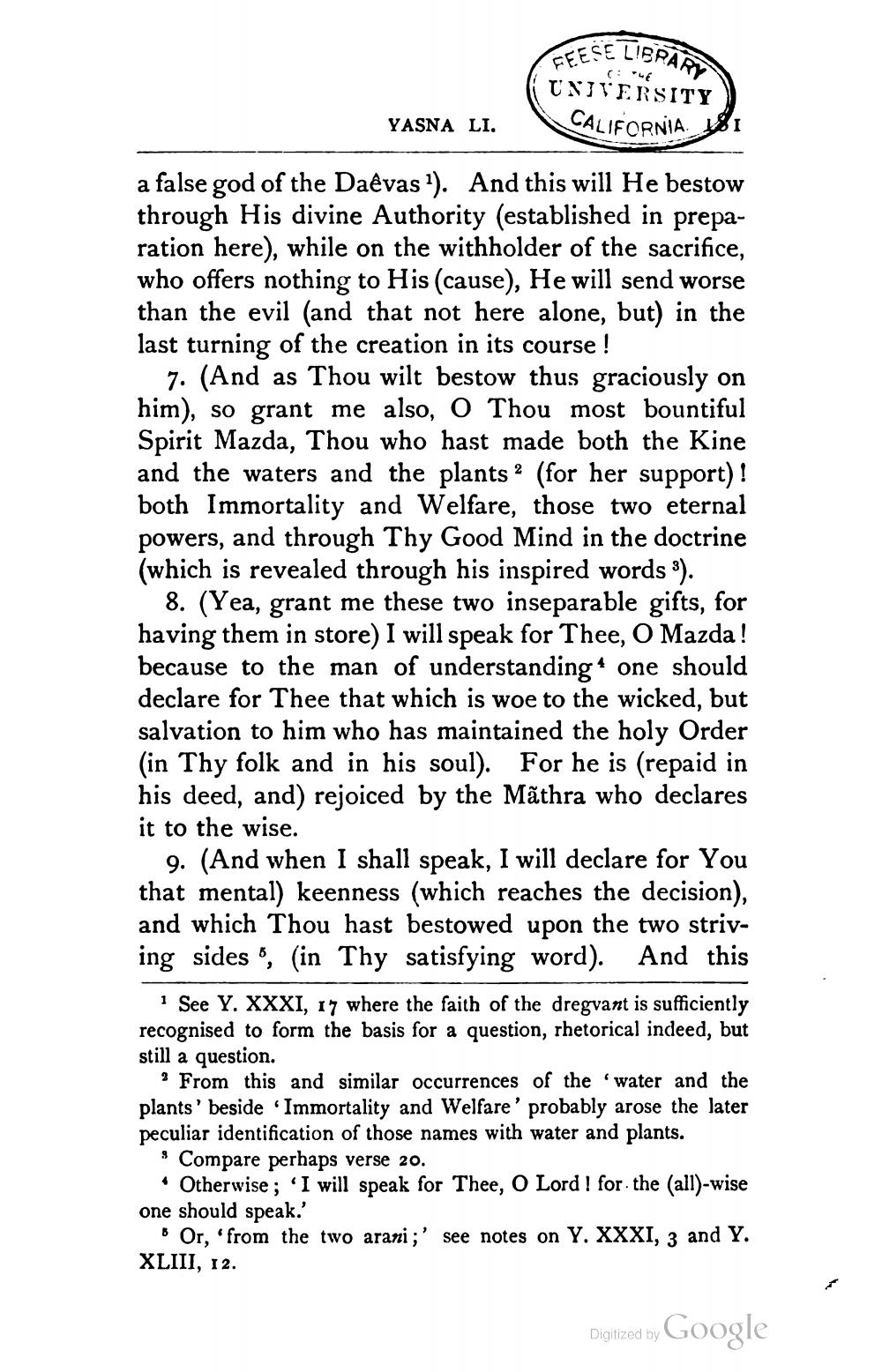________________
FEESE TIBRÀS UNIVERSITY
CALIFORNIA 181
YASNA LI.
a false god of the Daêvas). And this will He bestow through His divine Authority (established in preparation here), while on the withholder of the sacrifice, who offers nothing to His (cause), He will send worse than the evil (and that not here alone, but) in the last turning of the creation in its course!
7. (And as Thou wilt bestow thus graciously on him), so grant me also, O Thou most bountiful Spirit Mazda, Thou who hast made both the Kine and the waters and the plants 2 (for her support)! both Immortality and Welfare, those two eternal powers, and through Thy Good Mind in the doctrine (which is revealed through his inspired words 3).
8. (Yea, grant me these two inseparable gifts, for having them in store) I will speak for Thee, O Mazda! because to the man of understanding + one should declare for Thee that which is woe to the wicked, but salvation to him who has maintained the holy Order (in Thy folk and in his soul). For he is (repaid in his deed, and) rejoiced by the Mãthra who declares it to the wise.
9. (And when I shall speak, I will declare for You that mental) keenness (which reaches the decision), and which Thou hast bestowed upon the two striving sides ", in Thy satisfying word). And this
See Y. XXXI, 17 where the faith of the dregvant is sufficiently recognised to form the basis for a question, rhetorical indeed, but still a question.
? From this and similar occurrences of the water and the plants' beside Immortality and Welfare' probably arose the later peculiar identification of those names with water and plants.
s Compare perhaps verse 20.
• Otherwise ; 'I will speak for Thee, O Lord ! for the (all)-wise one should speak.'
• Or, 'from the two arani;' see notes on Y. XXXI, 3 and Y. XLIII, 12.
Digitized by
Digitized by Google




